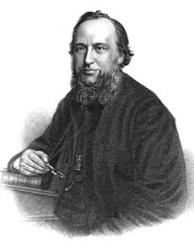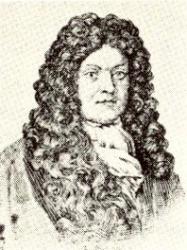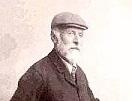Planning worship?
Check out our sister site, ZeteoSearch.org,
for 20+ additional resources related to your search.
- |
User Links
Person Results
John Julian

1839 - 1913 Topics: Advent IV Evening Prayer Opening Author of "High in regal glory" in The Hymnal of the Protestant Episcopal Church in the United States of America 1940 Born: January 27, 1839, St. Agnes, Cornwall.
Died: January 22, 1913, Thirsk, Yorkshire, England.
Educated privately, Julian graduated from Durham University (MA 1887), Lambeth (DD 1894), and Howard University in Washington, DC (LLD 1894). He took Holy Orders in 1866, and served as Vicar of Wincobank (1876-1905) and Vicar of Topcliff, Yorkshire (1905-). However, he is best known as a hymnologist. The standard reference work in this field is his massive Dictionary of Hymnology: Origin and History of Christian Hymns and Hymnwriters of All Ages and Nations, Together with Biographical and Critical Notices of Their Authors and Translators. This work has been revised and reprinted several times; its publication dates include:
-- London: J. Murray, 1892
-- London: J. Murray, 1908 (this may be the edition revised by James Mearns (1855-1922), Vicar of Rushden, Hertfordshire)
--Grand Rapids, Michigan: Kregel Publications, 1985
His other works include:
Concerning Hymns, 1874
History of the Use of Hymns in Public Worship, and Their Proper Characteristics, 1894
Carols, Ancient and Modern, 1900
Julian donated his large collection of hymnological books and manuscripts to the Church House, Dean’s Yard, London, where it formed the hymnological department of the library.
www.hymntime.com/tch
John Julian
Michael Fleming
1928 - 2006 Person Name: Michael Fleming, b. 1928 Topics: Advent IV Year B Composer of "WELLINGTON" in Common Praise
Michael Fleming
Patricia B Clark
1938 - 2009 Person Name: Patricia Blaze Clark, 1938-2009 Topics: Advent IV C Author of "When, to Mary, the Word" in Worship (4th ed.)
Patricia B Clark
Charles William Humphreys
1840 - 1921 Person Name: C. W. Humphreys Topics: Advent IV The Holy Communion In place of Gloria Translator of "Strengthen for service, Lord, the hands" in The Hymnal of the Protestant Episcopal Church in the United States of America 1940
Charles William Humphreys
Jeannette M. Lindholm
b. 1961 Person Name: Jeannette M. Lindholm, b. 1961 Topics: Advent IV B Author of "Unexpected and Mysterious" in Worship (4th ed.)
Jeannette M. Lindholm
Ahasuer Fritsch

1629 - 1701 Person Name: A. Fritsch, 1679 Topics: Advent I Year A; Sunday Next Before Lent; Lent IV Year A; Proper 20 Year C; Unity Composer of "DARMSTADT" in Common Praise Born: December 16, 1629, Mücheln, Saxony.
Died: August 24, 1701, Rudolstadt, Germany.
With help from the family of a young noble he tutored, Fritsch received a good education, earning his law degree from the University of Jena in 1661. He later became chancellor of the university and president of the Consistory of Rudolstadt. He wrote on numerous subjects, including antiquities, law, and religion, and collected hymns.
Hymns--
"Liebster Immanuel, Herzog der Frommen"
"Dearest Immanuel, Prince of the Lowly"
Music--
WAS FRAG' ICH NACH DER WELT
--www.cyberhymnal.org/bio
Ahasuer Fritsch
Jack W. Burnam
b. 1946 Person Name: Jack W. Burnam, b. 1946 Topics: Advent IV C Harmonizer of "MIDDLEBURY" in Worship (4th ed.)
Jack W. Burnam
Bryan Kelly
b. 1934 Person Name: Bryan Kelly, b. 1934 Topics: Advent IV Year A; Advent IV Year C Composer of "CASTIGLIONE" in Common Praise
Bryan Kelly
R. B. Y. Scott
1899 - 1987 Topics: Advent; National Days; God Purpose of; Peace International; Social Religion War and peace; Trinity IV The Holy Communion General Author of "O Day of God, draw nigh" in The Hymnal of the Protestant Episcopal Church in the United States of America 1940 Scott, Robert Balgarnie Young. (Toronto, Ontario, July 18, 1899--November 1, 1987). United Church. University of Toronto, B.A., 1922; M.A., 1924; Ph.D., 1928. Pastorate at Long Branch, Ont., 1926-1928; professor of Old Testament at Union College (Vancouver), 1928-1931; United Theological College (Montreal), 1931-1955; Princeton University, 1955-1968; also dean of divinity at McGill University (Montreal), 1945-1955. Published many translations of, and commentaries on, Old Testament material, as well as on the Dead Sea Scrolls. Most of his hymns date from his years in Montreal.
--Hugh D. McKellar, DNAH Archives
R. B. Y. Scott
Gerard Francis Cobb

1838 - 1904 Person Name: Gerard F. Cobb, 1838-1904 Topics: Advent; Saints' Days and Holy Days St. Matthew; Evangelists; Easter IV The Holy Communion Sequence; Holy Scriptures; St. John Evangelsit The Holy Communion Sequence; St. Luke Morning Prayer Closing; St. Matthias The Communion Opening; Trinity XI The Holy Communion Sequence Composer of "COBB" in The Hymnal of the Protestant Episcopal Church in the United States of America 1940 Gerard Francis Cobb was born at Nettlestead (near Maidstone), Kent, on 15 October 1838, the youngest of five children of the Reverend William Francis Cobb (1795-1862) - the rector of Nettlestead - and his wife, Mary Blackburn. The five children were:- 1. Mary (1826-1906), 2. Clement Francis (1821-1896), 3. William Francis (1831-1916), 4. Francis (1834-1920), and 5. Gerard Francis (1838-1904). (The patronymic ‘Francis' occurs in several generations. Gerard's grandfather was Francis Cobb (1759-1831), a brewer and banker of Margate, whose sons were William Francis (Gerard's father), John Francis and Thomas Francis. Gerard's brother Clement also had a son Francis William (1872-1938). The parents were both musical, the mother being a pianist (and latterly organist at Nettlestead) and the father a ’cellist. Gerard early showed an aptitude for music and was able to pick out a tune on the piano while still a child, and without any formal instruction.
Gerard Francis Cobb was educated at Marlborough College from 1849 to 1857. (His brothers William and Clement were also educated there.) He was a bright pupil, reaching the Sixth Form in September 1854 (still aged 15) and winning several prizes - the Divinity Prize (Summer 1853), the Upper Fifth Prize (Summer 1854), the Lower Sixth Prize (Christmas 1854) and the English Essay Prize (1856). He was also appointed a College Prefect and (when he left school) donated a cup as an inter-house singing trophy. (Inter-house singing competitions continue to be popular at Marlborough to this day.) Two concert programmes from Marlborough College (Christmas 1854 and Christmas 1856) show his active involvement as singer, pianist and harmonium player, although in neither programme is there any indication of a composition by him.
From Marlborough Cobb went up to Trinity College, Cambridge, matriculating in 1857. He was elected a Scholar in 1860, and graduated B.A. in 1861 with a double first in the Classical and Moral Science Triposes. He then went to Dresden for a short time, to study music. While there, he perfected his knowledge of German, later providing English translations for three of the texts of his own Lieder und Gesang (1885); he was also proficient in French and Italian, as well as being an excellent classical scholar. (Cobb wrote the words of at least one of his own songs - "Reconciliation" (c.1891) - and inserted a verse of his own into another song - "Drawbacks" (1892), words by Henry S. Leigh.)
It may have been at this time that he decided not to make music his profession: he returned to Cambridge, where he spent the rest of his life. He was elected a Fellow of Trinity in 1863, proceeding M.A. in 1864, and in 1869 was appointed Junior Bursar of his college. This office, which he held for twenty-five years and in which he showed great business capacity, seems to have centered around the day-to-day running of the college, which included looking after the accommodation of some six hundred students (Trinity was the largest of all the Oxbridge colleges) and even making sure that the brewery horse had the correct number of nails in his shoes! (The college had a small brewery).
Cobb's interests were many and varied. There was music, of course, but (appropriately, as the son, brother and uncle of rectors) he was also much interested in Church matters: he was in sympathy with the Tractarian movement (associated with Newman, Pusey, Keble, Forbes and Froude) and at one time contemplated (but finally declined) holy orders. He actively advocated union between the Anglican and Roman communities, and published an elaborate treatise which caused a sensation in ecclesiastical circles. A second edition (with a sequel) followed and this, in turn, was followed by two short tracts. Even as late as the 1860s there was a form of religious intolerance which although not life-threatening (as in the reigns of earlier monarchs) nevertheless ensured that a career in the Church would no longer be an option for Cobb. His appointment at Trinity was timely, and his energies were then directed towards the running of the College and to the pursuit of music.
Cobb was a fine organist, and gave occasional recitals at Trinity. His writings include a history of the organ and an account of the choir which, apparently, he also trained. He was, too, the University’s representative on municipal affairs and produced pamphlets on rather more mundane matters than were normally dealt with in "the olive-grove of Academe".
When Cobb went up to Trinity in 1857 the Professor of Music was the recently appointed (1856) William Sterndale Bennett (1816-1875). Cobb enjoyed Bennett's friendship and was helpful to him in dealing with the Faculty of Music. In the last years of his life, Bennett made use of two bound octavo music note-books in which he jotted down sketches and ideas; these books had been brought to him from Germany by Cobb.
On Bennett's death, the Professorship passed to the blind George Macfarren (1813-1887). Cobb proved equally helpful to the new incumbent, particularly in the reform of the Faculty. He had been elected President of the Cambridge University Musical Society in 1874 and became Chairman of the University Board of Musical Studies in 1877, serving in that capacity for fifteen years.
Aside from his work at Trinity, and his musical, religious, and municipal interests, there is yet one more facet of this Victorian polymath which must command our attention. He was, perhaps surprisingly, a great lover of outdoor activities - swimming, walking, hill climbing, and - above all - cycling. He was one of the founders - and first President (1878) - of the National Cyclists' Union (originally the Bicycle Union) and was also President of the Cambridge University Cycling Club. For the International Health Exhibition (1884) he contributed a chapter on 'Cycling' to the handbook on athletics, part 11.
Cobb thought so much of cycling that his enthusiasm induced not only undergraduates but even many of the Dons to take to it (33). He celebrated his sixtieth birthday by undertaking a cycle run of sixty miles in company with one of his nephews. Cobb was not very tall and was almost equalled in height by his earlier high cycle, although in later years he rode what was then called a 'safety cycle' (which was smaller) and, eventually a 'free wheel bicycle'. (The cycle which features in the accompanying photograph is presumably a 'safety' or 'free wheel' machine.)
Little is known of Cobb's life outside Cambridge. His duties at Trinity would have kept him there for most of the year, and his dealings with his London publishers were probably conducted by letter. His name appears on the invitation lists of several of the Royal Society of Musicians' annual dinners in the 1880s and, although he did not attend any of these, he is recorded as having made several donations to the Society.
In 1893 Cobb married Elizabeth Lucy Parkinson, widow of Stephen Parkinson, Fellow and Tutor of St. John’s College, Cambridge, and (in accordance with the custom of the time) resigned his offices at Trinity. He continued to reside in Cambridge - at The Hermitage Silver Street - and devoted himself mainly to musical composition. From this last period of his life came the second (1893) and third (1897) sets of Barrack-Room Ballads (the first having appeared in 1892) and his delightful Twenty-four Songs for Little People (1897) to words by Norman Gale (d. 1942), as well as works on a larger canvas, including his most ambitious work - A Song of Trafalgar Op. 41, a Ballad for men's voices (solo and chorus) and orchestra (1900), to words by Edith Nesbit (1858-1924) - remembered today as the author of The Railway Children (1906).
Among Cobb's large-scale works is reputed to be a Symphony although no trace of this has yet come to light. What can be stated with certainty, however, is that on 27 November 1902 a concert was held at the Winter Gardens, Bournemouth, given by the Municipal Orchestra under the direction of Dan Godfrey, jun. - later Sir Dan Godfrey (1868-1939) - and Gerard Cobb, who conducted "For the first time in Bournemouth" (and probably the first time anywhere) three of his own works - Introduction and Allegro Giocoso in B flat, Valse Pathétique 'Niobe', and Romanza for Orchestra, in E flat (performed at a Prom in 1901); two of Cobb's earlier songs - "I wish to tune my quivering lyre" (written in 1868) and "Mount, Gallants all!" (published c.1890 were sung by Henry Corner. (An orchestral score and band parts for "Mount, Gallants all!" were available for hire from the publishers, and it must be assumed that both songs were given with orchestral accompaniment.)
Cobb's last-known compositions were three further settings of poems by Kipling - not from the Barrack-Room Ballads this time, but from a similar collection, Service Songs. The three songs. - "M.I." (Mounted Infantry of the Line), "The Married Man" (Reservist of the Line), and "Lichtenberg" (New South Wales Contingent) - had been commissioned by Charles Sheard, who had published his settings of the Barrack-Room Ballads and they were completed just a few days before his death. Sheard published them later that year.
Gerard Francis Cobb died at The Hermitage on 31 March 1904. having succumbed to an attack of pneumonia. He was cremated at Woking on 5 April at 12.00 noon, at which precise time a memorial service was held at Trinity College Chapel; the music was all by Cobb. His ashes were laid to rest on 8 April in the churchyard at Nettlestead, where his widow erected a handsome cross in his memory.
http://www.musicweb-international.com/classrev/2004/oct04
Gerard Francis Cobb
James Hopkirk
1908 - 1972 Person Name: James Hopkirk Topics: Advent; National Days; God Purpose of; Peace International; Social Religion War and peace; Trinity IV The Holy Communion General Composer of "BELLWOODS" in The Hymnal of the Protestant Episcopal Church in the United States of America 1940
James Hopkirk


 My Starred Hymns
My Starred Hymns


